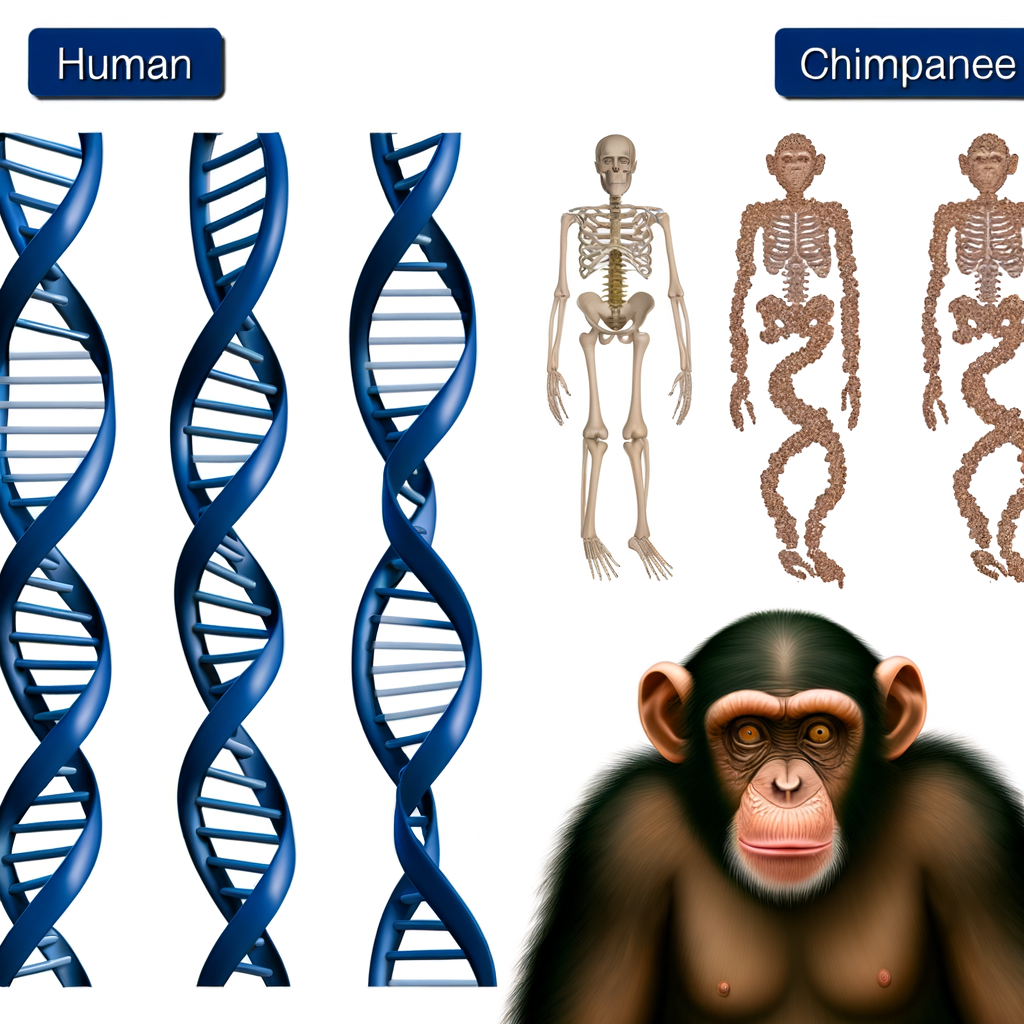URGENT: Record Cold Spreading Across The U.S.! Help Those In Need Now!
New Research Reveals Humans and Chimps Differ by More Than 1 Percent of DNA
Guest Contributor
Recent groundbreaking research has challenged the long-held belief that humans and chimpanzees share 99 percent of their DNA. This discovery is shaking up the scientific community and prompting a fresh look at human evolution and genetic differences.
For decades, the idea that humans and chimps differ by only one percent of their DNA has been a cornerstone in evolutionary biology. This statistic was often cited to emphasize the close relationship between the two species. However, new findings suggest that the genetic differences are actually more significant than previously thought.
The study utilized advanced genomic sequencing techniques to analyze the DNA of both species with greater precision. Researchers found that earlier methods underestimated the complexity and number of genetic variations. These variations contribute to important differences in physiology, brain function, and behavior.
One of the key revelations is that the differences are not just in small mutations but also involve larger structural changes in the genome. These include insertions, deletions, and duplications of DNA segments that can have profound effects on gene expression and function.
The implications of this research are vast. It challenges simplistic comparisons and calls for more nuanced approaches to studying evolutionary biology. Understanding the true extent of genetic divergence helps scientists better comprehend what makes humans unique and how evolutionary processes shape species over time.
Moreover, these findings highlight the importance of continual technological advancements in genetics. As sequencing tools improve, our knowledge of genetic relationships and evolutionary history becomes more detailed and accurate.
While humans and chimpanzees remain closely related in evolutionary terms, the revised estimate of their genetic differences opens new avenues for research into human development, diseases, and cognitive abilities. It underscores that even small genetic variations can lead to significant biological and behavioral distinctions.
This research encourages a deeper appreciation of the complexity of life and the evolutionary journey that has led to the diversity of species on our planet. It also reminds us to question and revisit scientific assumptions as new evidence emerges.
For those interested in the detailed scientific findings and their broader impact, the original article provides an in-depth exploration of this pivotal research.

